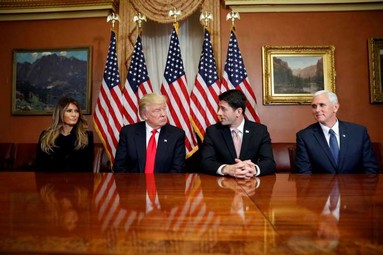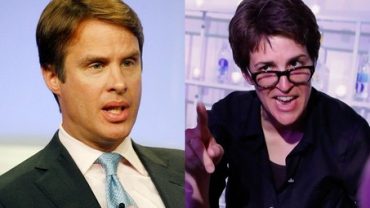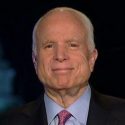Divergent stances on key issues could spark clash between Trump and Ryan
House Speaker Paul Ryan was in Janesville, Wisconsin, on Monday when he got a phone call from the media.
The reporter asked about President-Elect Donald Trump’s views on NATO, which he called obsolete.
It was the kind of rhetoric used to distract voters while no real change happened along the borders, or in deportation policy.
Ryan thought it was a trap.
“I’m sure he said something that you’re trying to wedge me on right now,” Ryan told Mike Allen, the former Politico reporter now at Axios.
Ryan was told it wasn’t a trap, or a trick.
Ryan then began one of the many Kabuki dances he will likely have to perform in 2017.
“Oh, I’ve been doing meetings with constituents all day,” Ryan told Allen. “I think NATO is indispensable and invaluable, and an enormously important contributor to world peace and stability. I think one of the issues that he’s trying to get at, which I completely agree with, is people need to meet their [commitment to spend 2 percent of GDP on defense], and I think he’s trying to give voice to that concern.”
Normally, the issue of NATO funding by allies would be put on the extreme back burner by Washington officials. The issue gets brought up every two or three years. Nothing gets done.
That is likely about to change, whether Ryan likes it or not, on a whole host of issues.
Big Pharma
Trump doesn’t see eye-to-eye with Ryan and many congressional Republicans on the cost of pharmaceutical drugs.
Trump, under increasing pressure to “replace” the Affordable Care Act with an alternative, said last week that big drug companies are “getting away with murder. We’re the largest buyer of drugs in the world, and yet we don’t bid properly, and we’re going to save billions of dollars.”
Big Pharma, as some call it, is no longer protected.
Ryan’s response was that big drug companies are not protected, and legislation passed under previous Republican leaders worked.

And in the meantime, Ryan wants to “have more conversations about” Trump’s plan to force drug competition for government business.
Ryan said the controversial 2003 expansion of Medicare, known as Part D, is working. (Medicare mostly covers seniors.)
“I believe that the current premium support system with Part D works extremely well,” Ryan told Allen. “I think there’s some real success stories … and I think we need to tell that story.”
But drug prices are a sore spot for U.S. consumers, who pay for much of the research and then the actual market cost for the drugs — while other nations, such as Canada, mandate pricing parameters, feasting off American ingenuity at reduced cost.
Trump is asking what can change in that odd equation.
NATO
Few issues are as thorny a point of contention between members of the traditional Establishment GOP and Trump as the North Atlantic Treaty Organization.
Founded after World War II, the multi-nation organization was founded as a bulwark against Soviet aggression.
Today, it’s almost used for the same reason. Despite a period of peaceful transition in the 1990s, Russia has returned as the biggest threat in Europe.
In 2014, Russia annexed part of the Ukraine — the Crimean peninsula.
It has encouraged Russian rebels in eastern Ukraine. And all of that has made Estonia, Lithuania, Latvia, and Poland nervous.
Russian President Vladimir Putin doesn’t like NATO, and feels Poland and other nations joining NATO, after Germany unified, was a potential threat.
To Trump, the time-tested alliance simply costs too much. Direct spending to Washington is only $500 million annually, according to The Washington Post, but it’s the indirect cost that likely has Trump irked.
The United States covers about 73 percent of NATO’s indirect costs, according to the Post. That means things like “intelligence, surveillance, reconnaissance, air-to-air refueling, ballistic missile defense, and airborne electronic warfare.”
Getting nations such as Germany to pay more for potential defense could be the key. And there are few things Ryan can do to stop Trump from encouraging that.
Immigration
At his town hall meeting on CNN on Jan. 12, Ryan boldly declared a deportation force “was not happening.”
Ryan, accepting to abide by the rhetorical parameters set by the Democrats on the issue, could have clarified that the nation already has a deportation force, known as Immigration and Customs Enforcement. The ICE union endorsed Trump in the general election after what many saw as a historic undermining of their authority and effectiveness during the Obama administration.
But Ryan also said he doesn’t want to deport illegal immigrants who were brought here by their parents — a group granted temporary, quasi-legal status by executive action from Obama.
“What we have to do is figure out how to have a humane solution to this very legitimate, sincere problem, and respect the rule of law,” Ryan told the audience.
If that sounds like the rhetoric of President George W. Bush and President Bill Clinton — it was. It was the kind of rhetoric used to distract voters while no real change happened along the borders, or in deportation policy.
Trump’s allies in Congress are most likely to confront Ryan on his home floor. Ryan will have to make hard choices when bills start flying that call for self-deportations before “amnesty” and green cards can be considered anew.
These are just three potential flash points that could happen. And they will happen soon — this year.
Senate Majority Leader Mitch McConnell (R-Ky.) has indicated a stronger interest in helping Trump deliver his agenda.
Ryan still seems kind of stunned by Trump’s victory. And Trump arrives Friday, with the Republican throngs who carried him to a surprise victory.
Like the long Sergio Leone western, the three gunmen will face off for the prize in the center of the circle. But Ryan is already in the worst position.
A spokeswoman for Ryan did not return a request for comment.
Please Comment Below…






